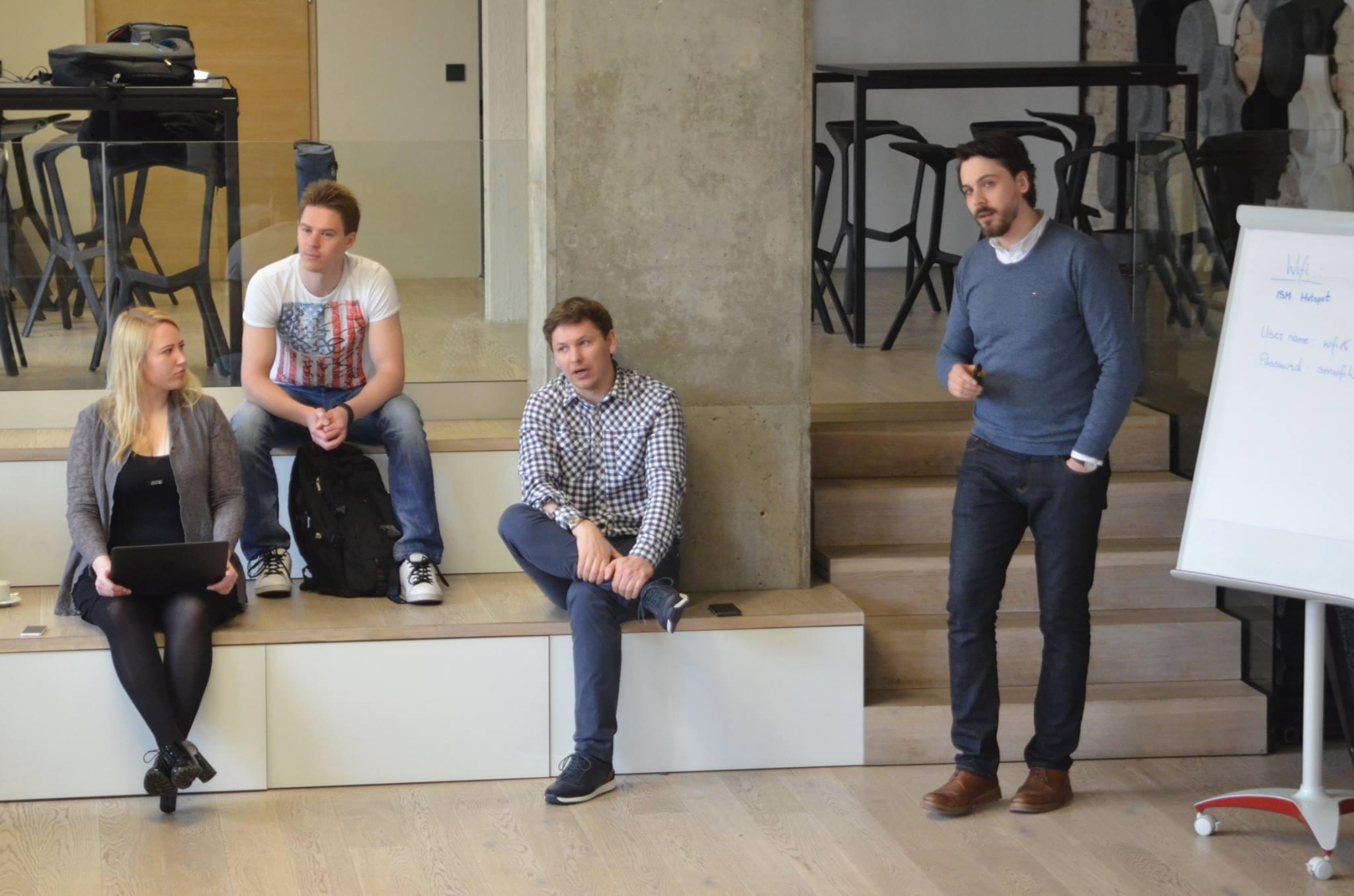Gleb Maltsev: 5 Pitching Mistakes Startups Should Avoid – Interview
2021
Jan 15
Jan 15

Startup Lithuania organized a pitch training session with Gleb Maltsev, the founder of Stoneful, a creative content agency that practices the craft of communication through writing, presentations, and design. Gleb is also the co-founder of Fundwise, a crowd investment platform for small and medium-sized businesses in the CEE. He has already mentored startups who participated in both Latitude59 and TechChill Baltics, and so consulting startups that are preparing for LOGIN Startup Fair completes Gleb’s map of the major Baltic startup events.
Despite of a very busy day mentoring startups, Gleb has managed to find a few minutes to share a couple of insights about the areas our startups could improve with our readers. So what are the issues Gleb often sees whilst mentoring and training startups?

1. Not pronouncing your name and your company name clearly enough. Because of this, Gleb says, people forget the names. So you must clearly announce it. If your company name consists of two words, you need to learn how to pronounce both words clearly and add a pause in between the words. As people are very familiar with their names and company names, they have said it so many times that they do not subconsciously feel the need to emphasize the names. This is also true for corporates.
2. Not asking for something. After listening to your pitch, people are likely to ask the question “so what?” or “what should I do?”. That should be clearly answered during the pitch. Obviously, this is true only if a startup already knows what he is looking for because sometimes this is not the case.
3. Using vague language instead of specific details. People are using words and buzzwords such as “machine learning”, AI, “innovative”, “unique”, “cutting edge”, “disrupting”. But, Gleb says, they use it as replacements for actual, real examples of what their products are actually doing. So you need to be specific. Being specific is really hard. But if you’re not specific, people that are listening will not have real examples to grab on to and to remember you.
4. Not revealing yourself. According to Gleb, another recurring issue among startups in our region as a whole is the emotionally reserved delivery of presentations. Maybe it’s a cultural thing, but there’s something that doesn’t allow people to express what they actually feel about what they’re doing. “Instead of top-down sales pitch startups should reveal themselves and make themselves vulnerable, they need to show the audience who they are and to show what they care about”, – Gleb claims. This requires introspection, reflection and asking the question “why” a lot. “Why am I doing it, why I’m doing it this way, why I care about the people in front of me”. If it’s not clearly answered, your motivation and the way you’re doing your talk will be compromised.
5. Not rehearsing. A lot of times people only have a couple of minutes for their pitch. If they’re over time, they might be cut off and asked for a clear outline. If they have not rehearsed it, they might awkwardly stumble into the ending. So rehearsing and having a clear outline helps a lot.
